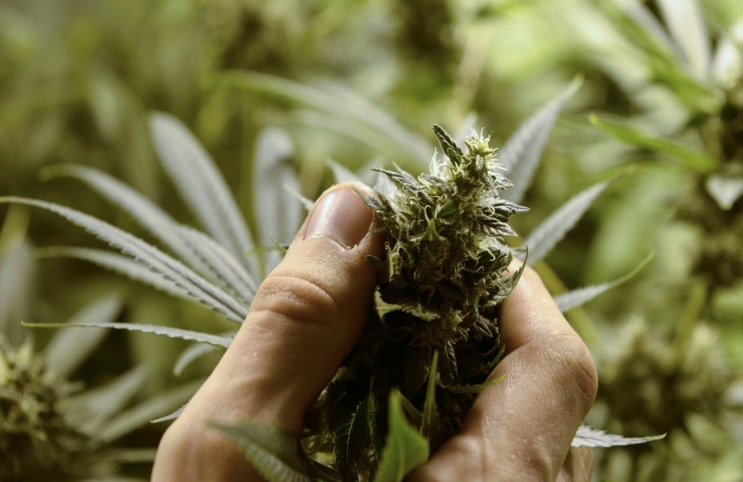With Election Day approaching, things look promising for the movement to legalize marijuana. Current polls suggest California and four other states may vote in favor of recreational cannabis, the country’s most popular illicit drug. This could be a huge milestone for the legalization of cannabis throughout the nation. Besides the entire West Coast; the states in which pot is legal could span from the Pacific to Colorado, raising a stronger challenge to the federal government’s ban on the drug.
California, Massachusetts and Maine all have legalization initiatives on the ballot that are highly likely to pass next month. Arizona and Nevada are also voting on recreational marijuana, with polls showing Nevada voters evenly split. Although the passage of recreational marijuana in states such as Alaska, Colorado, Oregon and Washington may have had a huge impact towards future federal legalization; experts say that a yes vote in California which has an economy the size of a large industrial countries, could be the final deciding factor.
“If we’re successful, it’s the beginning of the end of the war on marijuana,” said Gavin Newsom, the lieutenant governor of California and a former mayor of San Francisco. “If California moves, it will put more pressure on Mexico and Latin America writ large to reignite a debate on legalization there.”
Pot-legal states are in direct conflict with the federal government, particularly the Drug Enforcement Agency. In August the D.E.A. refused calls for a softening of regulations on marijuana and reiterated its classification as a Schedule 1 drug; putting it in the same category as heroin. A huge conflict exist between state and federal legal systems regarding financial transactions related to marijuana sales and which approach to take due to the fact that the federal government taxes marijuana companies; yet the same companies have trouble opening bank accounts or accepting credit cards because of the federal marijuana ban. If California says yes, this could mean the market for marijuana (both recreational and medicinal) could grow from $7 billion to $22 billion over the next four years according to projections by the Arcview Group, a company that links investors with cannabis companies.
“This is the vote heard round the world,” said Arcview’s chief executive, Troy Dayton. “What we’ve seen before has been tiny compared to what we are going to see in California.”
A yes vote in California would afford the same benefits received in Colorado such as a sharp reduction in drug arrests as well as a large increase in tax collection but on a scale many times larger. After years of resistance, proponents say their long-sought goal is finally within reach.
“My ultimate objective is to get this plant into the hands of every single human being on the planet who needs it — and in my view that’s everybody,” said Steve DeAngelo, the founder of Harborside, a medical marijuana dispensary in Oakland that bustles with clients taking advantage of a medical marijuana law that has been in place for two decades.
“It’s almost a religious spiritual thing,” Mr. DeAngelo said. “Mother Nature gave us this healing plant.”
In a city where marijuana used to be frowned upon; obtaining a quarter-ounce of marijuana in San Francisco would be as easy as ordering a pizza due to a partnership between the tech and medical marijuana industries. If approved, legalization would allow California to convert its countryside into pot-growing farms. It would legitimize and consolidate an industry that once brought into the forefront will more than likely have lobbying power equivalent to that of the tobacco and alcohol companies. According to Marijuana Business Daily; a trade publication, the recreational marijuana industry would be larger than the wine industry if use was legalized nationwide.
MAPH Enterprises, LLC | (305) 414-0128 | 1501 Venera Ave, Coral Gables, FL 33146 | new@marijuanastocks.com









